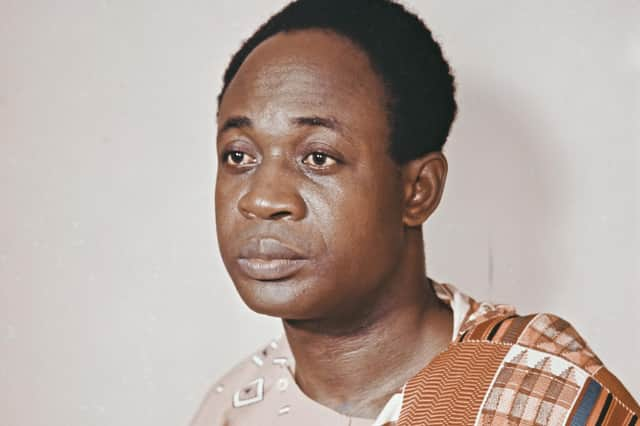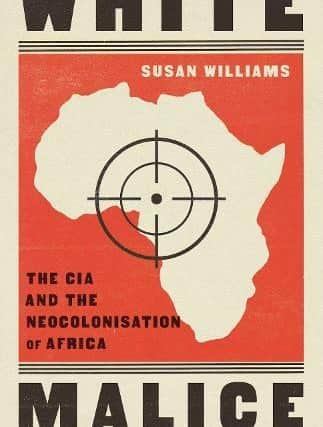Book review: White Malice: The CIA and the Neocolonisation of Africa, by Susan Williams


The names Kwame Nkrumah and Patrice Lumumba, the men at the centre of Susan Williams’ new book, may mean little to many 21st century readers, but their stories – their tragedies if you like – take on a new resonance in the era of the Black Lives Matter protests.
It was Nkrumah who spearheaded the movement to free African nations from their European colonial rulers and led Ghana to its independence from the UK in 1957. Also fairly elected to power, Nkrumah’s protégé Lumumba led his Republic of the Congo to independence from Belgium in 1960. Ironically, both men saw their countries as part of what they wished would become a “United States of Africa”, but it was the United States of America that led to their undoing. As the old colonialists bowed out, America, through the CIA, set about ensuring that the new African countries did not come under the influence of the Soviet Union, and that the continent’s vast mineral wealth could be corralled for American industry. Minerals in the Congo were of particular significance – copper, cobalt, industrial diamonds and especially high-grade uranium for nuclear weapons.
Advertisement
Hide AdOf course, knowing their best interests, the old colonial powers had intelligence systems and experienced officers in Africa able to liaise with the CIA. After all, in the Cold War it was American might, particularly the nuclear deterrent, that was protecting the European members of NATO.


As soon as it was formed in 1947, the CIA began its anti-Soviet cultural campaign, covertly spending billions of dollars to set up funds, journals and think tanks to influence the arts, higher education and aspects of political discourse in Africa. Different from our own MI6, the CIA was empowered to carry out covert armed interventions and assassinations (“wet work” as their agents called them), and it is clear that they had plans to poison or shoot Lumumba. These were not needed. A member of Lumumba’s inner circle and head of the Congolese army, Colonel Mobutu, became a paid puppet of the CIA and organised Lumumba’s capture and secret execution.
Williams’ assiduous research references (there are over 100 pages of notes, bibliography, details of declassified documents, records of interviews) give an authority to her case. Not only does she show the CIA agents’ day-by-day manoeuvres in Africa, including exploitation of the United Nations peacekeeping mission in the Congo, but also the Agency’s covert activities with African delegations at the UN in New York City. Then, everything is linked back to the nods and winks of US president Dwight Eisenhower and Vice President Richard Nixon.
The atmosphere, too, is one in which African Americans on the fringe of government were exploited or patronised. Also, popular musicians were exploited, such as in the promotion of African tours by the likes of Nina Simone and Louis Armstrong.
Nkrumah remained in office until the mid-1960s, but as Ghana became a one-party state and moved towards a nationalised economy, he was overthrown in a military coup which can be credited to the CIA. There is evidence, too, that a CIA source provided the South African government with the intelligence that enabled them to capture Nelson Mandela.
White Malice is aptly titled. It is both sombre and sharp, beginning and ending with Nkrumah and his Ghana. At the beginning of the decolonisations, Nkrumah observed, "The degree of Congo’s independence will substantially determine the ultimate fate of the whole continent of Africa.” When Richard Nixon represented Eisenhower at the celebration of Ghana’s independence he dived into the celebratory crowds in Accra. Slapping one man on the shoulder he asked, “How does it feel to be free?” “I wouldn’t know, Sir,” the man replied, “I’m from Alabama.”
Advertisement
Hide AdWhite Malice: The CIA and the Neocolonisation of Africa, by Susan Williams, Hurst Publishers, 688pp, £25
A message from the Editor:
Thank you for reading this article. We're more reliant on your support than ever as the shift in consumer habits brought about by coronavirus impacts our advertisers.
If you haven't already, please consider supporting our trusted, fact-checked journalism by taking out a digital subscription at https://www.scotsman.com/subscriptions